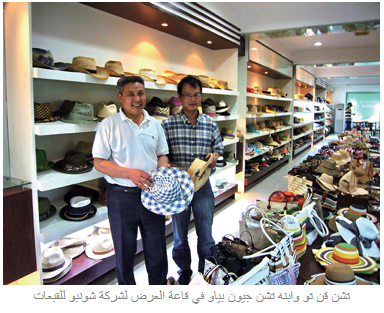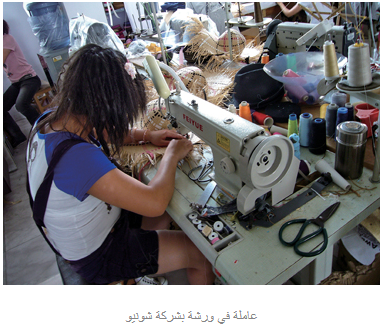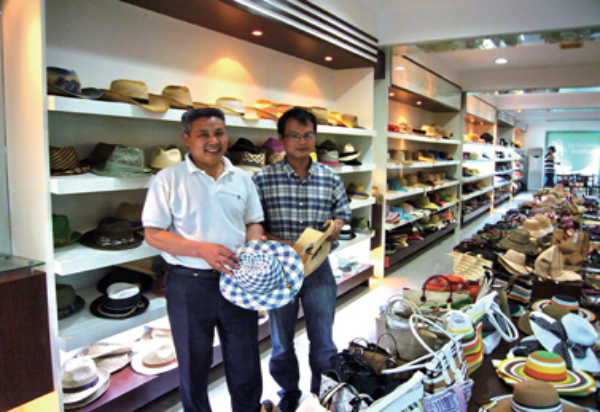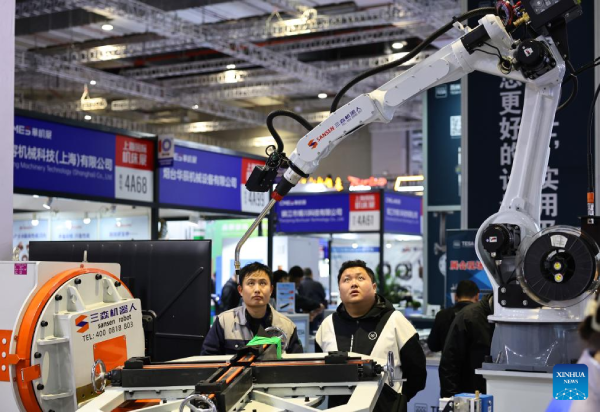
With a satisfied tone, Chen Gentuo, Chairman of Zhejiang-based Sunbo Hat Co., Ltd., said:
“I’m proud of my son. He has the ability to take over the company, while many children of family business owners are not qualified to lead their parents’ enterprises.”
The son he’s referring to, with gray hair appearing on his temples, is young Chen Junbiao — a representative of the second generation of China’s wealthy, poised to succeed their parents in managing family businesses worth hundreds of millions, or even billions, of yuan. Most members of this “second generation” were born after the 1980s. Their parents were the pioneers of private enterprises that emerged after China implemented its reform and opening-up policy.
British businessman Rupert Hoogewerf, founder of the renowned “Hurun Rich List,” said:
“The children of wealthy company founders are beginning to take over, especially in Zhejiang, Guangdong, and Fujian provinces, where businesspeople started relatively early. Their children are now assuming control earlier than in other parts of China.”
Chen Ling, Director of the Family Business Research Institute at Zhejiang University, said that successful succession in family businesses takes time.
“Succession has become a common issue for family businesses in Asia. Modern China, like other emerging economies, lacks succession models for such transitions.”

Learning and Decentralization
Chen Junbiao considers working in his family’s company as his destiny. Immediately after completing his university education, he joined the company. Unlike many family businesses, his father didn’t place him directly on the board but instead sent him to one of the company’s paper manufacturing factories to learn the craft. He worked there as a technician and worker for a year before joining the board.
Naturally, the father and son differ in their business approaches. The elder Chen focuses on attending trade fairs to promote the company’s products. In contrast, his son values introducing modern management concepts and emphasizes B2B e-commerce through platforms like Alibaba (alibaba.com) and Made-in-China (cn.made-in-china.com). Despite the global financial crisis negatively affecting exports, the younger Chen still receives online orders, helping to boost export volume and reduce losses.
He also pays attention to the finer details when dealing with customers — designing his own business card in a unique style, unlike his father who uses traditional cards, leaving a deep impression on clients.
Even in lifestyle, the two differ. The father dedicates all his time to the company, while the son believes in work-life balance — reserving one day weekly for family and taking yearly family vacations. He believes a family business should be a platform to showcase talent, not just a management tool.
“I hope that if I leave the company one day, someone outside the family can take it forward to a promising future,” he says.
However, not all second-generation heirs are like Chen Junbiao. Many prefer starting their own businesses, even though the capital often comes from their families.
Chen Gentuo plans to retire in two or three years, confident in the abilities of his son and daughter — the son manages production and marketing since 1998, and the daughter handles financial affairs. Since 2001, he has refrained from interfering in these operations. Chen believes the company’s growth requires qualified professionals — aside from his children, no other relatives sit on the board, as he believes hiring incompetent relatives hinders development.
According to Chen Ling, competitive second-generation entrepreneurs are products of their environment — shaped by family education, business traditions, and possibly even inherited traits. They gain not only wealth but managerial experience from their parents, enabling them to surpass their predecessors if the business environment remains healthy and fair.
More Examples
In 2007, 26-year-old Yang Huiyan received 70% of the shares of Country Garden Holdings from her father. Valued at around $16 billion, this made her the richest person in China, topping both the Forbes and Hurun rich lists that year.
However, due to the global financial crisis and a slump in China’s real estate sector, the company’s 2008 report showed massive losses from financial derivatives. Its share price dropped from HK$14 in October 2007 to just around HK$1 in October 2008 — a decline of over 90% in one year.
The financial crisis posed a major challenge for the second generation now at the helm. The first generation began their businesses before China joined the WTO, but their children face a far more complex environment. Zhao Min, founder of Adfaith Management Consulting in Beijing, said:
“Most private companies operate in low-margin industries, leading to short-term competition that isn’t conducive to long-term growth. Second-generation leaders must understand market competition rules and value collective wisdom instead of relying solely on personal intelligence.”
Ma Jinlong, president of Wenzhou Economic Association and professor at Wenzhou University, noted that second-generation entrepreneurs grew up in privileged conditions, unlike their parents who started with hardships. Their challenge lies in self-fulfillment amid more intense market competition.
Zhao Zikan, born in 1981, founder and CEO of Cutech Technology in Shijiazhuang, said many of his second-generation peers face two struggles:
Adapting to family businesses immediately after studying abroad, with little practical knowledge of operations and production.
Applying their academic knowledge in a business environment that differs greatly from the West.
To help them, Zhao Min suggested first-generation leaders follow the example of tycoon Li Ka-shing, who brought in experienced assistants to the board, ensuring smooth succession and company stability during crises.

Multiple Choices
Chen Ling conducted a study on private enterprises in eight cities and counties in Zhejiang, finding that two-thirds of the 312 companies were family-run. Rupert Hoogewerf noted that the average age of China’s wealthy on the Hurun list is 46. Given that retirement age is around 60, the next 10–20 years will be a peak period for succession.
Zheng Chen’ai, president of Wenzhou Garment Association, said his daughter declined to run his company, and he didn’t force her. Many second-generation heirs prefer modern industries such as internet, IT, and creative arts — his daughter now works in advertising design. Zheng believes the reluctance stems from the fact that most family businesses are in low-yield industries like garments, shoes, and hats, while the new generation is more educated and aspires to higher-value fields.
A Chinese proverb says:
“Wealth doesn’t last three generations.”
Statistics show that the average lifespan of a family business is 24 years. Only 30% transition successfully to the second generation, and merely 13% make it to the third.
Experience and awareness matter more than just inherited wealth. Passing on social responsibility and philanthropy may be even more crucial. On February 19, 2009, Cao Dewang, Chairman of Fuyao Glass, announced a donation of 70% of his shares — worth about 4.3 billion yuan — to establish a charitable foundation focused on education, poverty alleviation, disaster relief, and religious causes.








